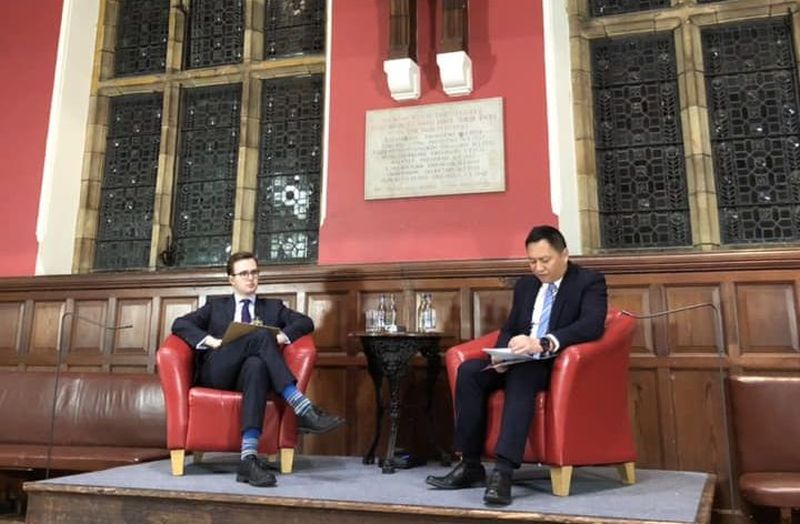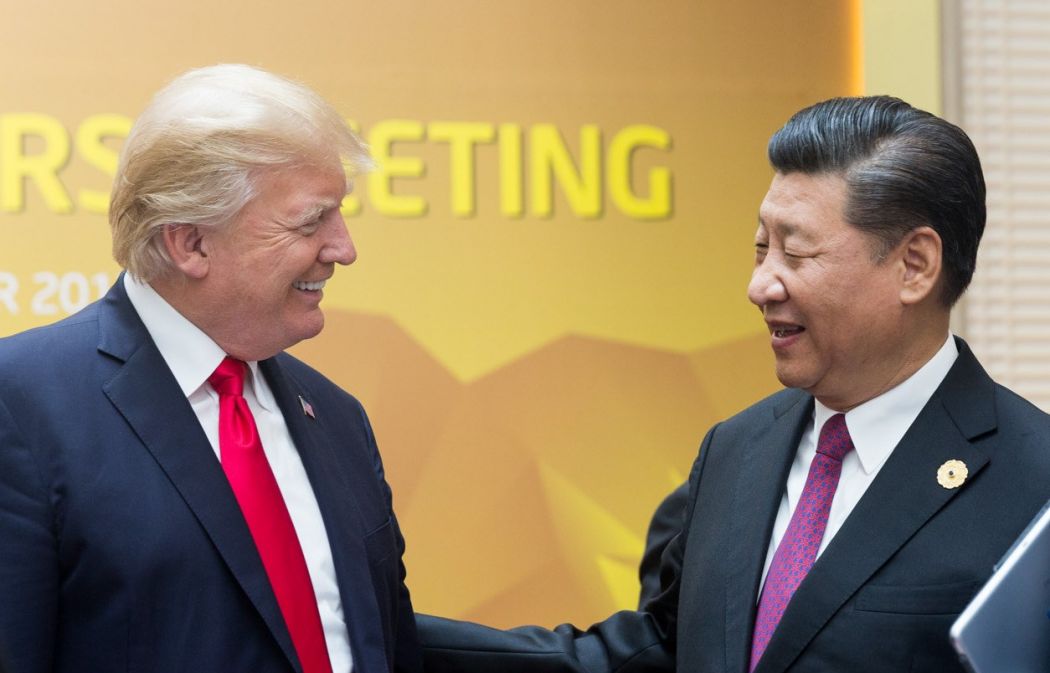By Ryan Tang
Wang Dan is a figure who needs no introduction for most readers of HKFP. One of the leading lights of the 1989 student protests in China, he remains an active voice in the Chinese democracy movement nearly 30 years on.
His speech at the historic Oxford Union is well worth a watch not just for his penetrating insights on contemporary Chinese politics, but also for his optimism about the future of democracy in China.

In the last few years, democrats in Hong Kong have been inexorably forced onto the defensive. The exuberance that surrounded the beginning of the Umbrella Movement has died down, replaced by despair at the tightening restrictions on political and civil liberties.
The temptation to despair at this juncture in Hong Kong’s development is obvious. The prospect for meaningful liberalisation in the PRC appears even more remote. Respected scholars increasingly see echoes of the Cultural Revolution, while escalating Sino-American tensions have prompted fears of a new Cold War.
Yet amidst all this, Wang remains broadly optimistic about the future of Chinese civil society. At Oxford on Monday there were dozens if not hundreds of PRC students patiently listening to him with an open mind.
It was a timely reminder that the Communist Party does not truly represent public opinion in the PRC, let alone the hopes and fears of millions of ethnically Chinese individuals in Taiwan, Southeast Asia, and the western world.
In truth, the Communist Party’s propaganda presents little more than a carefully curated ‘reality’. As Wang said, the China it presents is ‘good, but too good’. Its strident rhetoric betrays weakness, not strength; paranoia, not confidence.

After all, American politicians do not feel the need to loudly proclaim that ‘Kansas is an inalienable part of the United States’. Theresa May does not loudly trumpet the loyalty of the Royal Navy to the government of the day. Communist Party leaders are virtually unique in the international community in endlessly spotting grave insults to the ‘feelings of the Chinese people’.
All these statements betray the fundamental brittleness of the Communist Party’s rule, and its painful awareness that the regime’s claim to popular legitimacy is essentially transitory and contingent.
As Wang points out, the PRC’s party-state model faces endemic problems. The fruits of economic development are increasingly concentrated among a small, well-connected elite. For all its relentless emphasis on social stability and harmony, contemporary China is a society that lacks even the most basic semblance of basic legal rights for all.
Nineteenth century America was a magnet for ambitious immigrants from across the world; 21st century China continues to export many of its most talented minds to the western world, precisely because it lacks true security or stability.
For all of Xi’s anti-corruption rhetoric, his ideological campaigns have only destabilised the Communist Party’s internal equilibrium without meaningfully correcting the fundamental imbalances in the PRC’s society and economy.
Hong Kong’s future is – has always been – inexorably tied with that of China. But accepting this does not mean the conventional wisdom – that Hong Kong has no future beyond ever-closer union with the PRC – constantly trotted out by pro-Establishment voices, actually makes much sense.

On the contrary, worsening geopolitical tensions between the PRC and the United States directly threaten Hong Kong’s future prosperity, unless the international community continues to regard the city as meaningfully distinct and separate from the rest of the country.
One of Hong Kong’s greatest tragedies over the past 20 years is that many of its best-educated and most cosmopolitan residents – in short, the very people whom we might expect to be the most ardent democrats – have been apolitical bystanders at best, willing collaborators with the Communist Party at worst.
Many of them are upright and decent men and women, but all dictatorships have relied on the tacit acquiescence or active support of intelligent and respectable people.
Their conventional wisdom is that influence and power comes from working with the Communist Party, putting up with its abuses and excesses while trying to moderate its policies. For them, vocal criticism or activism is counter-productive; quiet, ‘pragmatic’ collaboration is in the city’s best interests.
A lot of opposition activists will argue that trying to persuade these men and women is a lost cause. But as Wang pointed out, individualism in the form of enlightened self-interest can also be a powerful force for democratic reform.
For the past two decades, Hong Kong’s elite have clung to the belief that their wealth, social status, and western passports allow them to enjoy the best of both worlds – profit from China’s economic growth whilst staying beyond the capricious grip of the CCP’s long arm.

But in an era of heightened geopolitical tension, this comfortable status quo appears increasingly precarious. In the years ahead, their ability freely to study, work, live, and invest in the US or Britain might depend on the survival of Hong Kong’s uniqueness.
Perversely, this rests to a large extent on the dogged persistence of the democracy movement in highlighting the city’s uniqueness and determination to resist full-blown authoritarianism to an international audience.
To that extent, Hong Kong’s cynical oligarchs should be grateful to the likes of Joshua Wong. Persuading them to change their political attitudes will clearly take time and effort, and in many ways these men and women are not natural allies of progressive, indeed radical, activists.
But no democracy movement has succeeded without building a broad-based coalition of disparate individuals and groups with little in common beyond a common desire for a more accountable political system.
When the Iron Curtain fell across Eastern Europe in 1989, the ruling Communist parties did not collapse simply because they were faced with unprecedented mass protests. They surrendered power peacefully because their own elites saw a better future for themselves in switching sides, and forced the hands of the party leaders at the top.

It is easy to give in to despair when following the latest news from Hong Kong, but hopelessness is precisely what the Communist Party hopes to engender. Although conventional political activism and engagement appear to have failed, there are other ways of effecting change.
Dictatorships inevitably rely on self-censorship and this has crept into the city in recent years. To take one example, a long-standing acquaintance of mine studying political philosophy in Oxford refused to attend Wang’s speech because of fear that it would be ‘too sensitive’ for a future professional.
But self-censorship only works in an environment where everyone believes that they would be singled out, and therefore no one is willing to speak up. The simplest, and arguably the most powerful, act of resistance anyone can engage in is simply to live as if these invisible ‘red lines’ do not exist.
Beneath the glittering façade of Central, there is an incredibly dynamic ‘underground’ Hong Kong of rappers, photographers, artists, and writers. Their willingness to challenge prevailing cultural norms of deference and conformity are slowly but steadily changing social attitudes in a city that has never been quite as conservative (in every sense of the word) as many would like to pretend.
The capacity of individuals to effect change – whether by attending an underground concert, inviting civil society figures from Hong Kong, China, or Taiwan to speak at a think-tank or university, attending a pride parade, or simply sharing articles critical of the Communist Party on social media – is in and of itself a powerful cause of hope.
Ryan Tang is a History and Politics graduate from the University of Oxford.
